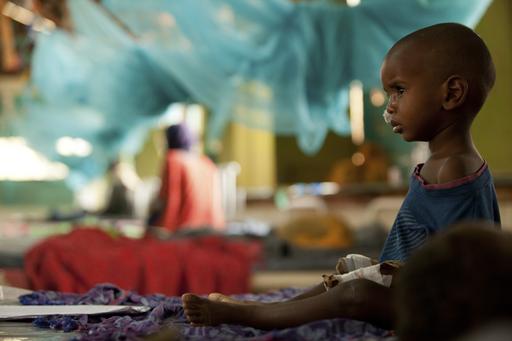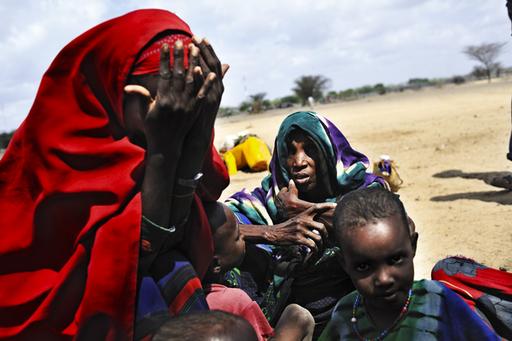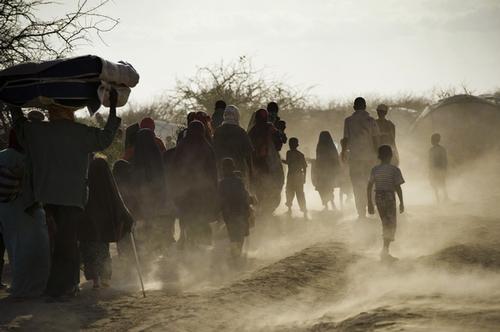Introduction
In the Dadaab camp - the largest refugee camp in the world- where life is becoming more difficult everyday, hundreds of thousands of refugees are facing a humanitarian emergency. The health of refugees is at risk of deteriorating rapidly while humanitarian aid agencies are struggling to provide meaningful assistance on an ongoing basis.
In October 2011, in the wake of the kidnapping of two MSF staff and amid a climate of worsening security, all ‘non-lifesaving activities’ were halted within the camps, and official registration of new arrivals was stopped. Today, for many refugees, services have not been restored. There is an urgent need to ensure that protection and assistance is provided, even though efforts are being made to guarantee that food aid is distributed in the current environment.
The relocation of families to the newly opened camps of Ifo 2 West and Ifo 2 East has been ongoing while the works to ensure sufficient services have slowly restarted. Today, a limited number of people remain on the outskirts of the camps, in so-called ‘self-settled areas’, where living conditions are still extremely poor. These living conditions have profound consequences on the health of these refugees, as confirmed in a detailed survey by MSF’s epidemiological branch, Epicentre conducted in September 2011. Within the camps, the health situation is alarming, with recent outbreaks of measles, acute watery diarrhoea and cholera.
The situation of the refugees in Dadaab camps is extreme with little hope of improvement in the short term. While the media and political attention concentrate on the stabilisation of the situation in Somalia, we cannot ignore the striking needs of thousands of people who live in inhuman conditions.The international community is failing to provide those men, women and children fleeing conflict and drought with more than the bare minimum.
MSF has continued to run its hospital and four health posts in Dagahaley camp, but was forced to halt its activities in Ifo 2 camp, where the kidnapping took place. At the height of the emergency, from October to January, MSF’s 300-bed hospital in Dagahaley was operating beyond its capacity, reaching a peak of more than 350 patients in the first week of January. Today, the situation has improved, as medical activities have been restored in Ifo 2. However, the figures of severely malnourished children requiring hospitalisation are still high compared to the same period last year, with close to 100 children being admitted to the intensive therapeutic feeding centre on a weekly basis.
Despite limited international presence in the camp due to security concerns, our senior MSF staff are still able to provide medical activities of high quality. MSF is constantly adapting to the challenges existing in the camps where not only the humanitarian needs are extremely important, but where the risks incurred by our teams are exceptionally high.






